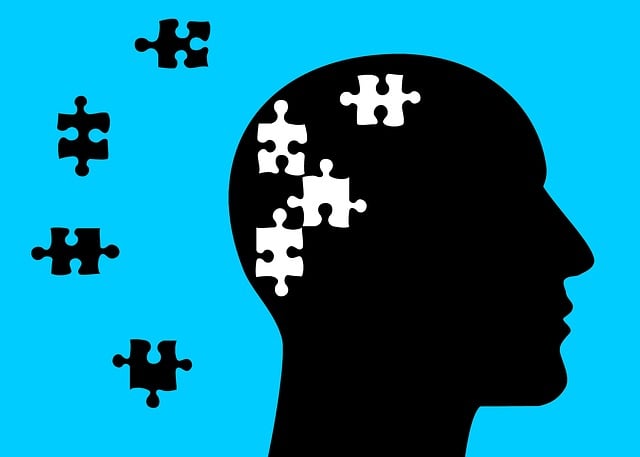Englewood Therapy for Therapists-Clinicians is revolutionizing mental wellness coaching through specialized training programs integrating evidence-based practices, communication strategies, and personalized interventions. Their approach combines immersive learning, a Mental Wellness Podcast Series, and compassion cultivation to enhance self-awareness and emotional intelligence. By focusing on present-day skills and tailored support, they empower therapists to guide clients towards improved mental health outcomes, contributing to a robust mental health policy landscape.
In today’s fast-paced world, mental wellness coaching programs are emerging as a modern approach to therapy. This article delves into the transformative power of these programs, focusing on strategies for development and best practices. We explore the pivotal role that organizations like Englewood Therapy play in training clinicians and therapists, ensuring effective delivery. From designing tailored programs to implementation and evaluation, this comprehensive guide offers insights into enhancing mental wellness support. Discover how these initiatives can revolutionize care, making a significant impact on individuals’ overall well-being.
- Understanding Mental Wellness Coaching: A Modern Approach to Therapy
- The Role of Englewood Therapy in Clinician-Therapist Training
- Designing Effective Coaching Programs: Strategies and Best Practices
- Implementation and Evaluation: Ensuring Quality in Mental Wellness Coaching
Understanding Mental Wellness Coaching: A Modern Approach to Therapy

Mental wellness coaching is a modern approach to therapy that empowers individuals to take an active role in their mental health and well-being. Unlike traditional talk therapy, which often focuses on past experiences and emotions, wellness coaching emphasizes present-day strategies and skills for managing stress, improving mood, and fostering resilience. This proactive method supports clients in achieving their personal goals related to mental wellness, promoting self-awareness, and cultivating lasting coping mechanisms.
Englewood Therapy offers specialized training programs designed for therapists and clinicians interested in integrating coaching techniques into their practice. These programs delve into effective communication strategies, risk assessment for mental health professionals, and resilience-building techniques tailored to diverse client populations. By embracing this innovative approach, practitioners can enhance their ability to guide individuals toward improved mental wellness outcomes.
The Role of Englewood Therapy in Clinician-Therapist Training

Englewood Therapy plays a pivotal role in shaping the future of mental wellness coaching by offering specialized training programs tailored for therapists and clinicians. This innovative approach recognizes that skilled professionals are the backbone of effective mental health support, especially as we navigate complex issues like mental illness stigma reduction efforts. Through immersive learning experiences, therapists gain insights into the latest research and practices, enabling them to create personalized self-care routines for better mental health among their clients.
Englewood’s commitment extends beyond traditional training, delving into creative areas such as producing a mental wellness podcast series. This strategic initiative not only amplifies important conversations surrounding mental wellness but also equips therapists with dynamic tools to engage and support diverse client populations. By fostering these continuous learning opportunities, Englewood Therapy contributes significantly to the evolution of holistic mental wellness coaching practices.
Designing Effective Coaching Programs: Strategies and Best Practices

Designing Effective Coaching Programs requires a strategic approach that combines evidence-based practices with a deep understanding of individual needs. At Englewood Therapy for Therapists-Clinicians, we emphasize the importance of tailoring coaching sessions to foster personal growth and resilience. One key strategy is integrating Compassion Cultivation Practices, which promote self-awareness and empathy, enhancing both therapeutic relationships and client outcomes.
Moreover, incorporating Emotional Intelligence into coaching sessions equips individuals with the skills to manage emotions, understand others, and make meaningful connections. Our Mental Wellness Podcast Series Production serves as a valuable resource, offering practical insights and inspiring stories that can be leveraged within coaching frameworks. By combining these best practices, Englewood Therapy for Therapists-Clinicians aims to revolutionize mental wellness coaching, enabling clients to navigate life’s challenges with greater ease and self-compassion.
Implementation and Evaluation: Ensuring Quality in Mental Wellness Coaching

Implementing mental wellness coaching programs requires meticulous planning and evaluation to ensure quality and effectiveness. At Englewood Therapy, therapists and clinicians play a pivotal role in this process by integrating evidence-based practices into their coaching methodologies. This involves staying abreast of the latest research in positive thinking and communication strategies, tailoring interventions to meet individual needs, and fostering an inclusive environment that encourages open dialogue.
Regular evaluation is crucial for gauging the program’s impact. Therapists can employ various tools, such as pre-post assessments and participant feedback, to measure improvements in mental health outcomes. By aligning coaching practices with evidence and continuous improvement, Englewood Therapy contributes to a robust Mental Health Policy Analysis and Advocacy landscape, ultimately enhancing access to quality care for those seeking support.
Mental wellness coaching has emerged as a powerful tool within the therapeutic landscape, offering individuals a unique and accessible way to navigate their mental health journeys. As highlighted by this article, engaging in comprehensive training, such as that provided by Englewood Therapy for Therapists-Clinicians, is essential for developing effective coaching programs. By integrating best practices and strategies outlined in “Designing Effective Coaching Programs,” therapists can deliver high-quality care. Through rigorous implementation and evaluation, as discussed in the final section, mental wellness coaching can become a transformative force, enabling individuals to thrive and leading to improved overall well-being.











